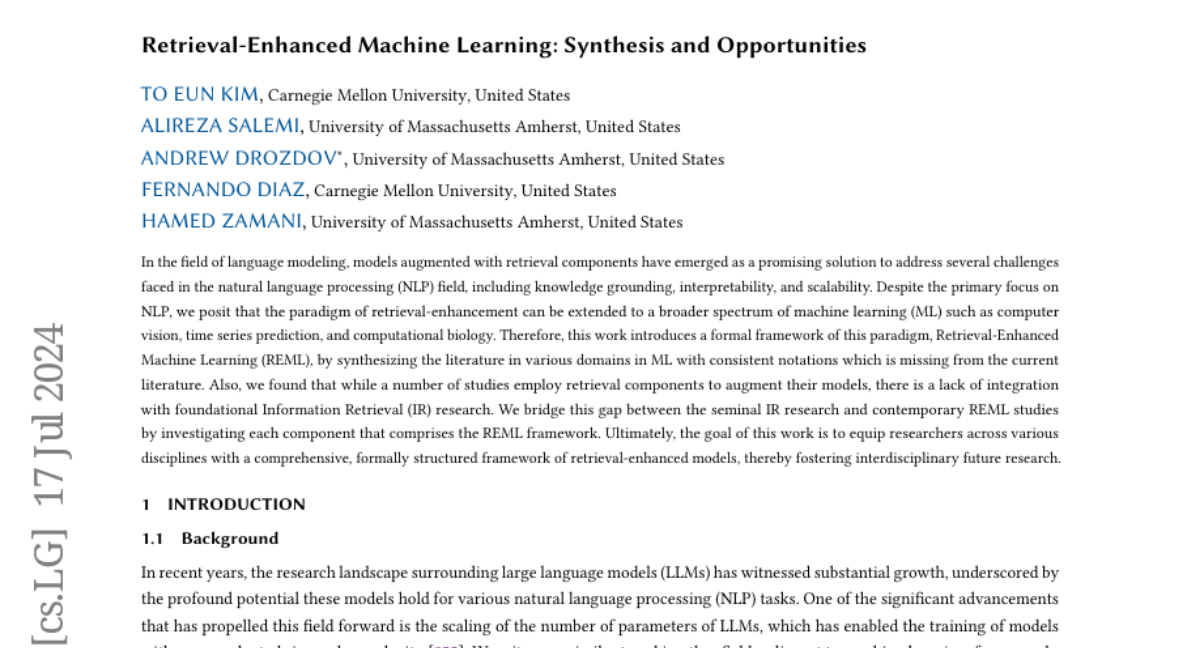Retrieval-Enhanced Machine Learning: Synthesis and Opportunities
To Eun Kim, Alireza Salemi, Andrew Drozdov, Fernando Diaz, Hamed Zamani
2024-07-19

Summary
This paper presents a new approach called CodeV, which helps large language models (LLMs) generate high-quality Verilog code, a specialized programming language used for designing hardware. It uses a method of multi-level summarization to improve the accuracy of the generated code.
What's the problem?
As technology advances, there is a growing need for automated tools to help design complex processors. However, existing LLMs struggle to generate accurate Verilog code due to a lack of good training data. Current models perform well with general programming languages but fail when it comes to hardware description languages like Verilog, leading to poor quality code.
What's the solution?
The authors developed CodeV by first recognizing that real-world Verilog code is often of higher quality than what LLMs can generate. They created a multi-level summarization framework that combines two types of summaries: one that focuses on the structure and syntax of Verilog code (code-level) and another that provides higher-level information about the design's functionality (design-level). This approach allows the LLM to better understand how to generate accurate and robust Verilog code. Experimental results showed that CodeV outperformed previous models significantly in generating Verilog.
Why it matters?
This research is important because it enhances the ability of AI to assist in hardware design, making it easier and more efficient for engineers to create complex systems. By improving how LLMs generate Verilog code, CodeV can help streamline the design process in electronics, ultimately saving time and reducing costs in technology development.
Abstract
In the field of language modeling, models augmented with retrieval components have emerged as a promising solution to address several challenges faced in the natural language processing (NLP) field, including knowledge grounding, interpretability, and scalability. Despite the primary focus on NLP, we posit that the paradigm of retrieval-enhancement can be extended to a broader spectrum of machine learning (ML) such as computer vision, time series prediction, and computational biology. Therefore, this work introduces a formal framework of this paradigm, Retrieval-Enhanced Machine Learning (REML), by synthesizing the literature in various domains in ML with consistent notations which is missing from the current literature. Also, we found that while a number of studies employ retrieval components to augment their models, there is a lack of integration with foundational Information Retrieval (IR) research. We bridge this gap between the seminal IR research and contemporary REML studies by investigating each component that comprises the REML framework. Ultimately, the goal of this work is to equip researchers across various disciplines with a comprehensive, formally structured framework of retrieval-enhanced models, thereby fostering interdisciplinary future research.